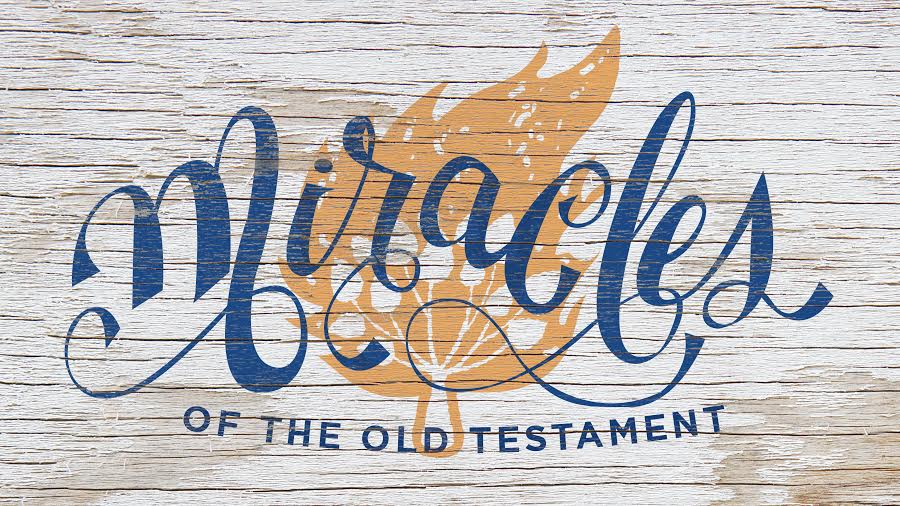
18 Aug Recap | Miracles of the Old Testament | The Fiery Furnace
When commanded to worship the Babylonian king Nebuchadnezzar, the Jews Shadrach, Meshach, and Abednego refused to sin against God and were ultimately saved by His miracle on their behalf. For believers, miracles are possible but not guaranteed, and often the choice must be made between suffering as a disciple or prospering as a spiritual adulterer.
In the early 6th century B.C., the Neo-Babylonian Empire invaded the city of Jerusalem under the rule of Nebuchadnezzar, sending the nation of Israel into exile and deporting thousands of Jews to Babylon. With spectacular achievements throughout the world, the king’s pride grew to outrageous levels; Nebuchadnezzar’s identity became rooted in his perception of himself as an all-powerful, sovereign, god-like figure without rival in his kingdom.
In Daniel 3, the king erects a ninety-foot-tall gold statue of himself in Babylon, commanding all people to bow to the ground in worship of it or else be thrown into a blazing furnace. Babylonian informants bring Shadrach, Meshach, and Abednego to the king’s attention. These three Jews, workers in the Babylonian government, have refused to worship Nebuchadnezzar and his statue.
Upon hearing the informants’ claims, the king flies into a wild rage. In Nebuchadnezzar’s eyes, the Jews’ refusal is a violation of his god-like identity. Their actions surpass mere disobedience; they are a desecration of the king’s status. The energy and violence behind Nebuchadnezzar’s reaction displays the lengths we will go to in order to defend and assert our held identities. In our sinful condition, we cling to the identities that we create for ourselves, and we possess seemingly boundless energy to retaliate when we feel that these identities have been infringed.
The Jews are brought before the king who gives them one last chance to worship him or be burned in the furnace. To flaunt his apparent sovereignty, Nebuchadnezzar offers a challenge to the Jews if they refuse: “what god will be able to rescue you from my power?” With this, Nebuchadnezzar makes his polytheistic views clear; he believes that there are numerous gods who claim sovereignty over various areas of the world, and he is the god to rule over Babylon in absolute power.
Shadrach, Meshach, and Abednego respond by deferring to the absolute power of the one true God. They again reject the king’s commands and refuse to even make a defense for themselves. They confidently boast of God’s ability to save them from the furnace and rescue them from Nebuchadnezzar’s power. They then tell Nebuchadnezzar, “even if he doesn’t [rescue us] … we will never serve your gods or worship the gold statue you have set up.”
The Jews are sure of the sovereignty of God, yet they have accepted the possibility that they could die in the furnace if He wills it. They are expectant of a miracle, but they are resigned to the fact that God doesn’t always perform miracles on His people’s behalf. His miracles, as with all events, happen according to his own discretion. There are many who believe who have been saved from death; how many more have been martyred?
The Jews also understand the nature of their situation. In forcing them to sin against God or commit civil disobedience, the king has elevated himself to the level of a god, essentially removing the Jews from the conflict at hand. Foolishly, Nebuchadnezzar now stands in opposition to his Creator.
Greatly enraged, Nebuchadnezzar enacts his wrath against the Jews. They are thrown into the blazing furnace, seven times hotter than usual. The guards that throw them in – subjects of a king powerless to rescue them – are burned up by the flames.
Nebuchadnezzar then watches as the Jews walk around in the fire with a fourth figure that “looks like a god.” Calling them out of the flames, he sees that the fire had not even touched them. At this undeniable evidence, the king cries out, “Praise to the God of Shadrach, Meshach, and Abednego!” This sequence of events scarcely could have gone better for the Jews. The king has been (somewhat) humbled, and their confidence in God has been vindicated. They are even given a promotion by Nebuchadnezzar.
The Jews’ choice to defy their king arose from their faith in the fact that God could save them; however, their faith is also shown in that they believed He would be deserving of their fidelity even if He chose not to save them. As followers of a God who is able to do all things, yet not at all subject to our preferences of life and death, we are called to imitate Shadrach, Meshach, and Abednego with a faith that is expectant of His miracles yet resigned to His sovereign and mysterious will.
Application
1. What if God had let the Jews die? What if He lets us die? The Scriptures are clear that Christians are not promised prosperity in the world. In fact, we are instead promised suffering. See Hebrews 11:33-38.
2. Do you fear God or fear man? It’s only possible to do one or the other. In order to fear man less, you must learn to fear God more.
3. Are you confident in God’s ability to deliver you? Are you able to rest in the knowledge of His ability to do so instead of fearfully working to deliver yourself?
4. Are you willing to bear the consequences of being a disciple in this world, or will you only be loyal to Christ if it benefits you? Are you willing to believe that He is good even when you are suffering, and can you trust that that may be His will for you? Is your profession of trust in Him for your salvation reflected in your trust in Him regarding the small and mundane events of life?
-Brian Barbee
To listen to or view this sermon, click here.


